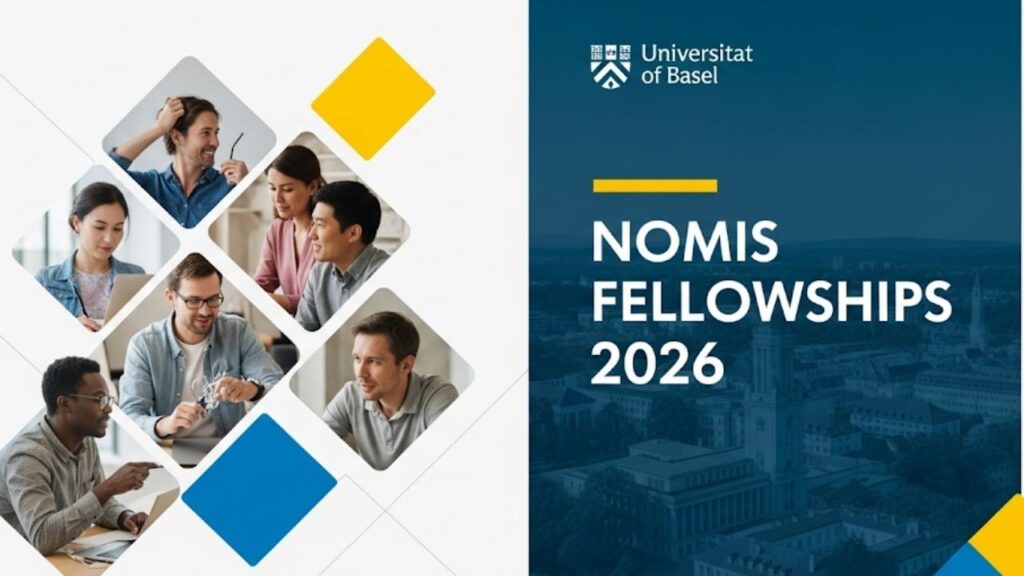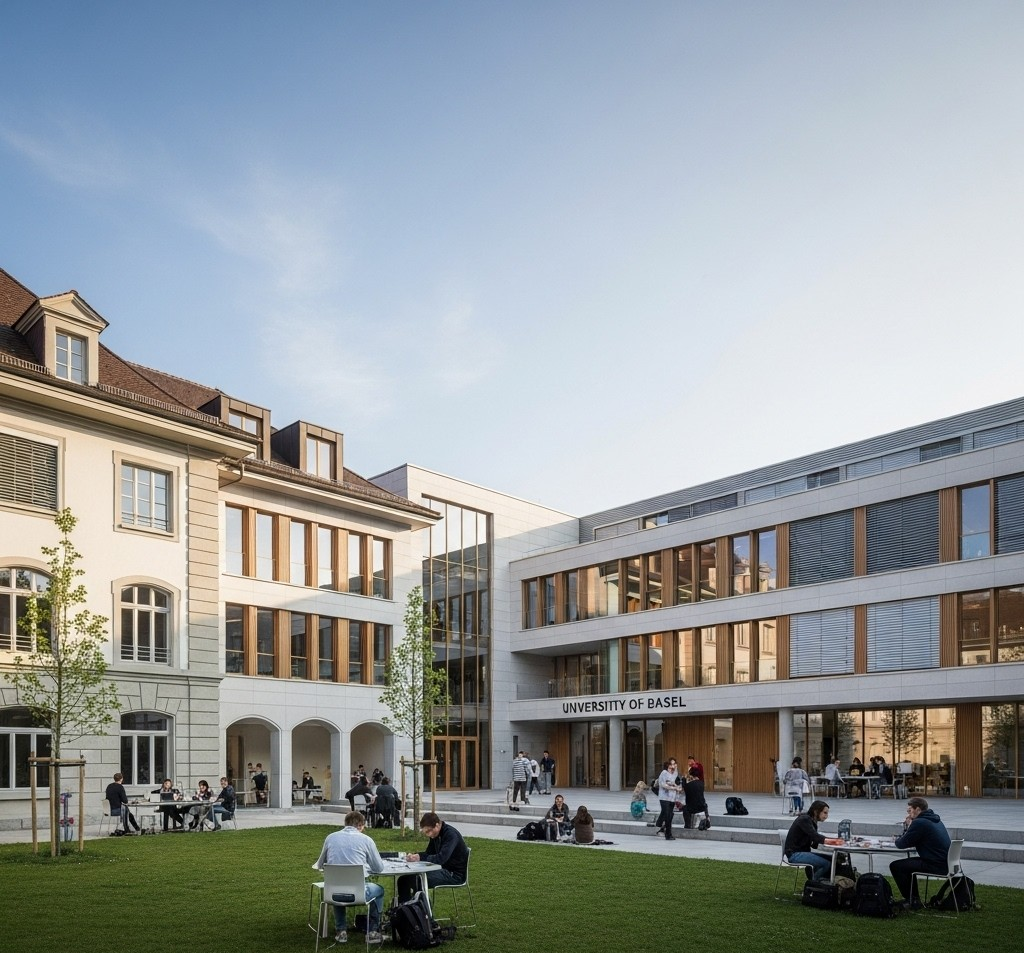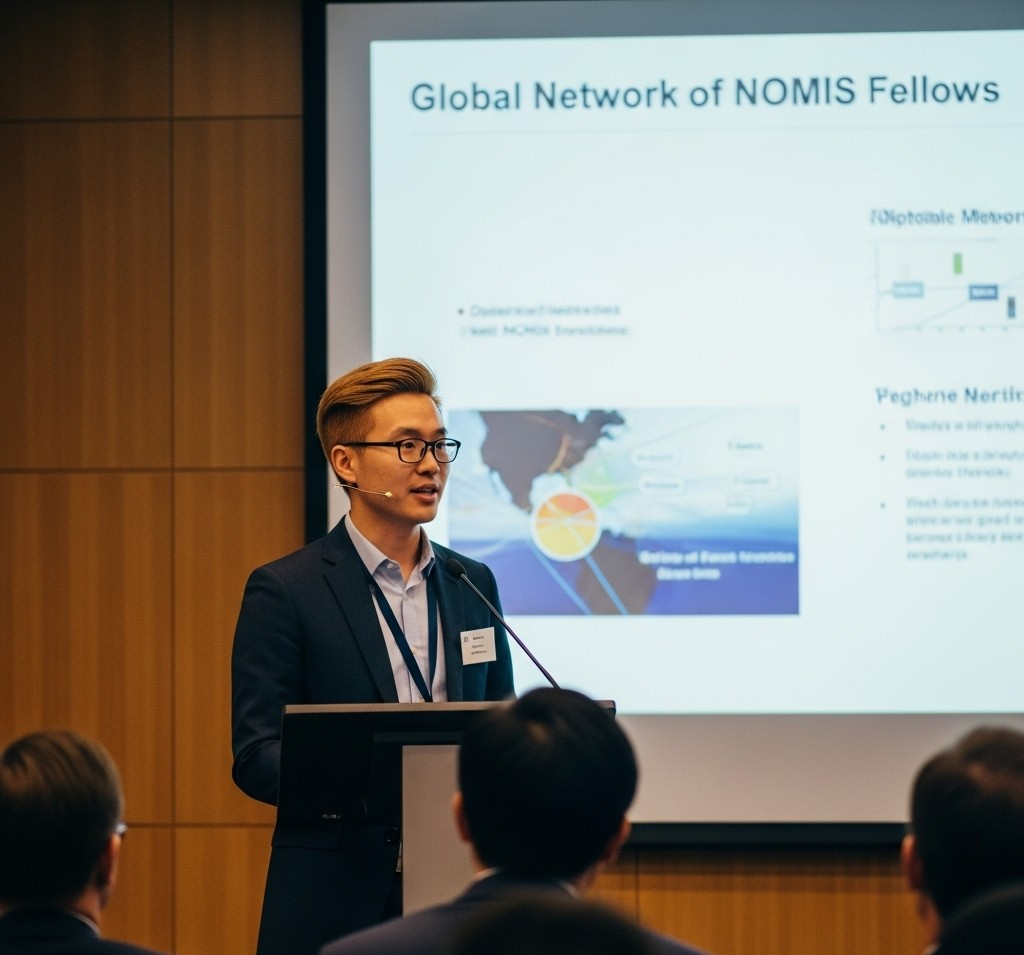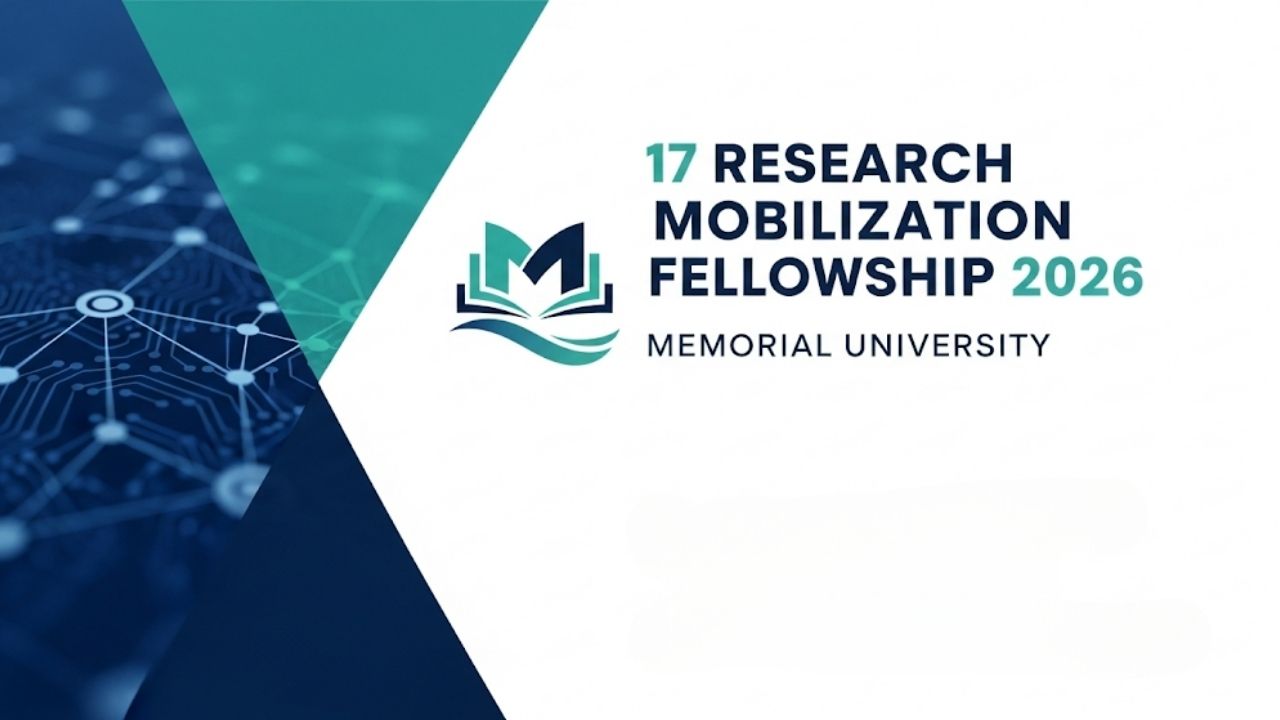Are you an exceptional researcher poised to make groundbreaking contributions to your field? Do you dream of pursuing high-risk, high-reward basic research in an environment that fosters interdisciplinary collaboration and intellectual freedom? If so, the NOMIS Fellowships 2026 at the University of Basel might just be the transformative opportunity you’ve been seeking. These prestigious fellowships, offered in partnership with the NOMIS Foundation, are designed to empower visionary scholars and scientists to push the boundaries of knowledge, free from conventional constraints.

Navigating the world of advanced research fellowships can often feel like deciphering a complex code. I’ve seen many aspiring fellows get overwhelmed by the sheer volume of information and the meticulous requirements. My goal in this comprehensive guide is to demystify the NOMIS Fellowships 2026 application process, providing you with clear, actionable insights and the encouragement you need to successfully secure this esteemed position. Prepare to dive deep into what makes these fellowships unique, who they’re looking for, and how you can craft an application that truly stands out.
The NOMIS Philosophy: Fueling Pioneering Research
The NOMIS Foundation is driven by a singular vision: to “create a spark” in the world of science by enabling and supporting pioneering research across the natural sciences, social sciences, and humanities. Their mission is to foster insight-driven science, focusing on researchers who exhibit a bold, pioneering spirit and are eager to inspire the world around them. This aligns perfectly with the University of Basel’s long-standing tradition of academic excellence and its commitment to cutting-edge research.
The NOMIS Fellowships at the University of Basel, specifically at the eikones – Center for the Theory and History of the Image, are a testament to this shared philosophy. These fellowships focus on groundbreaking research projects related to how images act as models or paradigms in scientific and aesthetic contexts. This unique interdisciplinary focus is a hallmark of NOMIS support, encouraging scholars to bridge traditional disciplinary divides and explore novel perspectives.

Why the University of Basel? A Hub of Innovation
The University of Basel, Switzerland’s oldest university, boasts a rich history of scientific discovery and a vibrant, internationally connected research environment. As a comprehensive university with seven faculties, it offers optimal conditions for advanced research. Its commitment to interdisciplinarity and high-quality research aligns seamlessly with the NOMIS Foundation’s objectives.
Researchers at the University of Basel are involved in numerous national and European initiatives, fostering a collaborative atmosphere where new insights are gained, and innovative strategies are developed. This supportive ecosystem provides NOMIS Fellows with access to state-of-the-art facilities, extensive academic resources, and a network of leading experts.
Understanding the NOMIS Fellowships 2026 at eikones
The NOMIS Fellowships 2026, hosted by the eikones – Center for the Theory and History of the Image at the University of Basel, specifically seek outstanding junior and senior researchers whose work explores the fundamental ways images serve as instruments for making complex structures visible and accessible to interpretation. This encompasses a broad range of topics, from the history and theory of imaging techniques in the natural sciences to the formation of canons in the arts.
Fellows are expected to be in residence at eikones in Basel, fully immersing themselves in the center’s intellectual life and contributing to its research advancement. The fellowships are for one year, beginning September 1, 2026, offering dedicated time for research free from teaching and administrative obligations.
Eligibility: Are You the Ideal Candidate?
Securing a NOMIS Fellowship requires meeting specific criteria that underscore your scholarly achievements and future potential. The call for applications for the NOMIS Fellowships 2026 at the University of Basel explicitly outlines the following requirements:
- Doctoral Degree: Applicants must possess a doctoral degree. This is a non-negotiable prerequisite, demonstrating a foundational level of advanced research capability.
- Publication Record: You must have previously published either a monograph (such as your dissertation) OR at least three articles in peer-reviewed journals or collected volumes. This criterion highlights the importance of a demonstrable track record of scholarly output.
- Research Relevance: Crucially, your research must relate to the theme of “images as models.” This includes applicants from all academic fields, emphasizing the interdisciplinary nature of the fellowship.
- Language Proficiency: Applications can be submitted in either German or English.16 While English is often the working language in international research, demonstrating proficiency in both can be an asset.
In my experience advising students, one common hurdle is underestimating the importance of clearly articulating how their research aligns with the specific thematic focus of the fellowship. For the NOMIS Fellowships, it’s not enough to simply have a strong research background; you must show a compelling connection to the “images as models” theme.
Crafting a Winning Application: Your Path to Basel
The application process for the NOMIS Fellowships 2026 is rigorous, designed to identify truly exceptional candidates. Here’s a detailed breakdown of the required materials and crucial tips for each:
- Cover Letter: This is your first impression. Keep it concise, compelling, and tailored specifically to the NOMIS Fellowship at eikones. Clearly state your interest, briefly highlight your qualifications, and explain how your research aligns with the “images as models” theme. This isn’t just a formality; it’s your opportunity to tell your story and make a personal connection.
- Curriculum Vitae (CV): Your CV should be comprehensive, detailing your academic history, publications, presentations, research experience, awards, and any relevant professional activities. Ensure it’s up-to-date and meticulously organized.
- Contact Details for Two References: You will need to provide the contact information for two referees. Unlike some applications, specific letters of recommendation are not required at the initial stage, but shortlisted candidates may be contacted for interviews. Choose referees who know your work intimately and can speak to your scholarly achievements and potential.
- Copy of Doctoral Diploma: Proof of your completed doctoral degree is essential.
- Project Description (2-3 pages plus references): This is the core of your application. Your project description should be a clear, compelling, and innovative proposal that outlines your research questions, methodology, expected outcomes, and its relevance to the “images as models” theme.
- Clarity and Conciseness: While detailing complex ideas, ensure your language is accessible. Avoid excessive jargon or explain it clearly.
- Innovation and Risk-Taking: NOMIS actively seeks high-risk, out-of-the-box research. Emphasize the novel aspects of your project and its potential to generate new insights.
- Interdisciplinarity: Highlight how your project bridges different disciplines and contributes to the interdisciplinary focus of eikones.
- Published Writing Sample (circa 20 pages): This allows the selection committee to assess your writing style, analytical skills, and scholarly rigor. Choose a piece that best showcases your abilities and, if possible, one that aligns with the fellowship’s theme.
Applications must be submitted by September 1, 2025, using the online portal provided by the University of Basel.20 It’s crucial to adhere to their specific formatting guidelines: all materials (1-6) must be uploaded as a single PDF file via the “resume” field, with an extra cover letter uploaded via the “cover letter” field.21 Applications that do not conform to this format will not be considered. Always double-check these instructions on the official University of Basel website before submission.

The Benefits: More Than Just Funding
Being a NOMIS Fellow at the University of Basel offers a wealth of benefits beyond financial support:
- Generous Salary: Fellows receive a competitive salary, allowing them to focus solely on their research.
- Travel and Conference Funds: Support for attending conferences and conducting necessary research travel is provided, fostering collaboration and dissemination of your work.
- Excellent Academic Infrastructure: Access to the University of Basel’s top-tier facilities, libraries, and research networks.
- Freedom from Teaching and Administrative Obligations: This dedicated time is invaluable for deep, focused research.
- Integration into a Global Network: NOMIS Fellows become part of an international network of leading interdisciplinary researchers and institutions, opening doors to future collaborations and opportunities.
Your Next Steps: Embrace the Challenge
The NOMIS Fellowships 2026 at the University of Basel represent an unparalleled opportunity for researchers who are ready to make a significant impact. It’s a chance to dedicate yourself to high-impact, interdisciplinary research within a world-class academic setting.
A Comprehensive Guide to the Royal Society Wolfson Visiting Fellowship 2025 (Term 2)
Unlock Your Research Potential: The Canada John H. McArthur Research Fellowship 2025 Open
FAQ
Q1: What is the primary focus of the NOMIS Fellowships at the University of Basel?
The NOMIS Fellowships at the University of Basel, specifically at the eikones – Center for the Theory and History of the Image, support groundbreaking research projects that explore how images function as models or paradigms in scientific and aesthetic contexts.
Q2: What are the key eligibility requirements for the NOMIS Fellowships 2026?
Applicants must hold a doctoral degree, have published a monograph or at least three articles, and their research must be relevant to the “images as models” theme. Applications can be submitted in German or English.
Q3: What documents are required for the application?
The application requires a cover letter, CV, contact details for two references, a copy of your doctoral diploma, a project description (2-3 pages), and a published writing sample (circa 20 pages). All documents should be submitted as a single PDF file (excluding the separate cover letter upload) via the online portal.
Q4: What are the benefits of a NOMIS Fellowship?
NOMIS Fellows receive a generous salary, travel and conference funds, access to excellent academic infrastructure, freedom from teaching and administrative obligations, and integration into a global network of leading researchers.
Q5: When is the application deadline for the NOMIS Fellowships 2026?
The application deadline for the NOMIS Fellowships 2026 is September 1, 2025.










